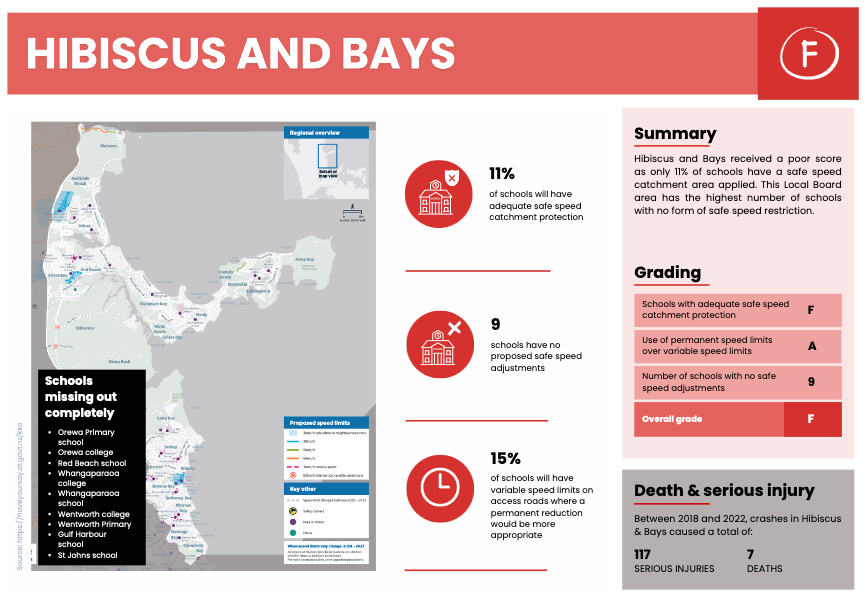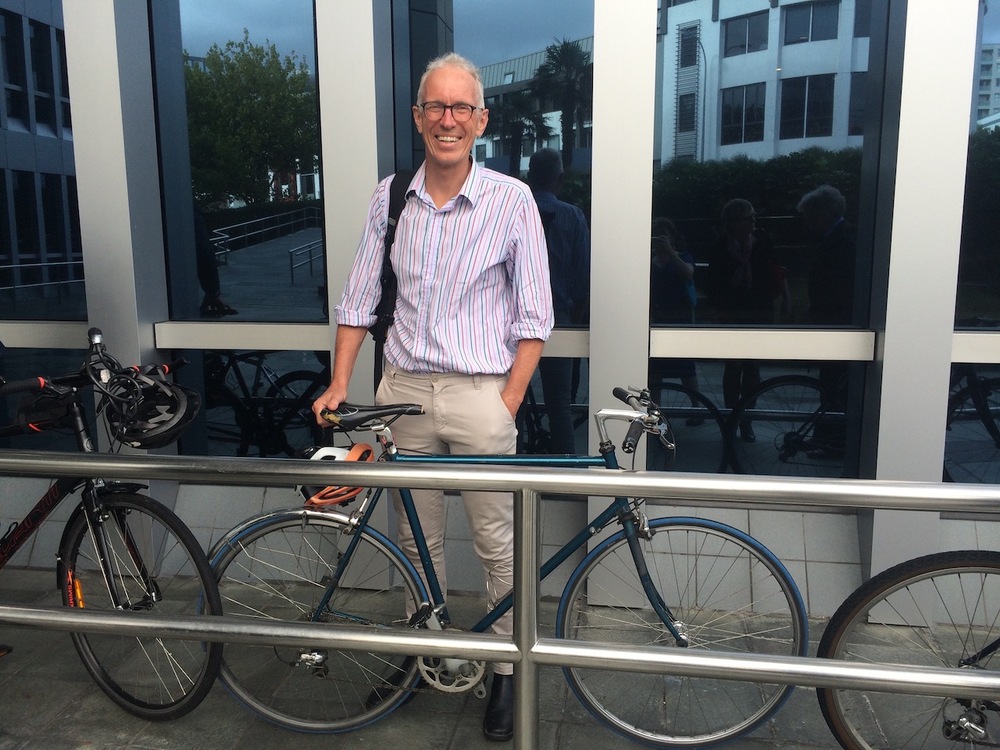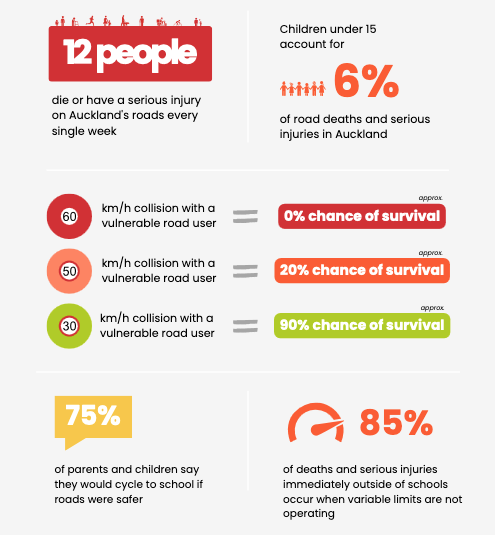School speed limits create safety lottery
Staff Reporter
21 August 2023, 12:46 AM
 Hibiscus Coast & Bays board area scores an F.
Hibiscus Coast & Bays board area scores an F.Auckland Transport’s safe speed proposals will lead to a postcode lottery for child safety, say public health advocates.
The safety of children in Tāmaki Makaurau will be heavily impacted by which suburb they live in and which school they attend, shows a new scorecard analysis of Auckland Transport’s Katoa, Ka Ora proposals.
AT is proposing to bring in new speed restrictions around schools from next year, but public health advocates are concerned about variation between local board areas and urge Aucklanders to submit the plan before the 28 August deadline.
Healthy Auckland Together, a coalition of groups advocating for safe and healthy environments, carried out the analysis and produced the scorecard.
“Almost one in five local board areas received an ‘F’ (Fail), and 36 schools across Auckland will miss out altogether – they will see no reduction in speed limits at all”, said Professor Alistair Woodward, University of Auckland public health researcher and chair of the Healthy Auckland Together transport network.
“Safe speeds save lives and help our children be more active. But our analysis of the Auckland Transport proposals shows which area you live in, and which school your child attends, will determine whether or not they can travel safely to school.”
“We need permanent safe speed bubbles around all our schools if we’re serious about saving children’s lives.”

The analysis ranked each local board based on:
- what proportion of schools had permanent 500m safe speed ‘bubbles’ around them (covering two-thirds of the radius or more)
- whether schools had permanent or variable speed limits outside the school gates
- how many schools in each area missed out on any form of speed reduction
“Speed reduction proposals need to reflect the reality that many children come and go from schools across a wide catchment area, and not just around 9am or 3pm,” Woodward said.
“Operating limited speed reductions on one access road outside each school, for a brief window of time, won’t give children the protection they need to feel confident walking or cycling.”

Professor Alistair Woodward, School of Population Health, Faculty of Medical and Health Sciences, University of Auckland.
Māngere-Ōtāhuhu, Manurewa and Waiheke all received the highest scores with 100 percent of schools in their areas proposed to have (or already applying) some form of a speed restriction; the vast majority of these schools are also set to see safe speed bubbles applied.
Waiheke has already had most of its protections implemented as part of previous phases of the Auckland Transport speed-management plan.

Tragically, every week in Auckland 12 people die or receive a serious injury due to crashes on our roads.
Active transport users (e.g. cyclists and walkers) account for 36 percent of deaths and serious injuries due to crashes, while children make up six percent.
Auckland Transport’s own research shows 75 percent of children and parents say they would walk or cycle to school more often if roads were safer.
Furthermore, its evidence also shows why permanent speed limits are preferable to variable ones: 85 percent of deaths and serious injuries outside of schools occur when variable limits are not operating.
- Auckland Transport’s Katoa, Ka Ora proposal consultation runs until 28 August, and Aucklanders can have their say by visiting: www.haveyoursay.at.govt.nz/kko
- To download the Healthy Auckland Together scorecard report and learn more about safe speeds, visit: https://www.healthyaucklandtogether.org.nz/safe-speeds
